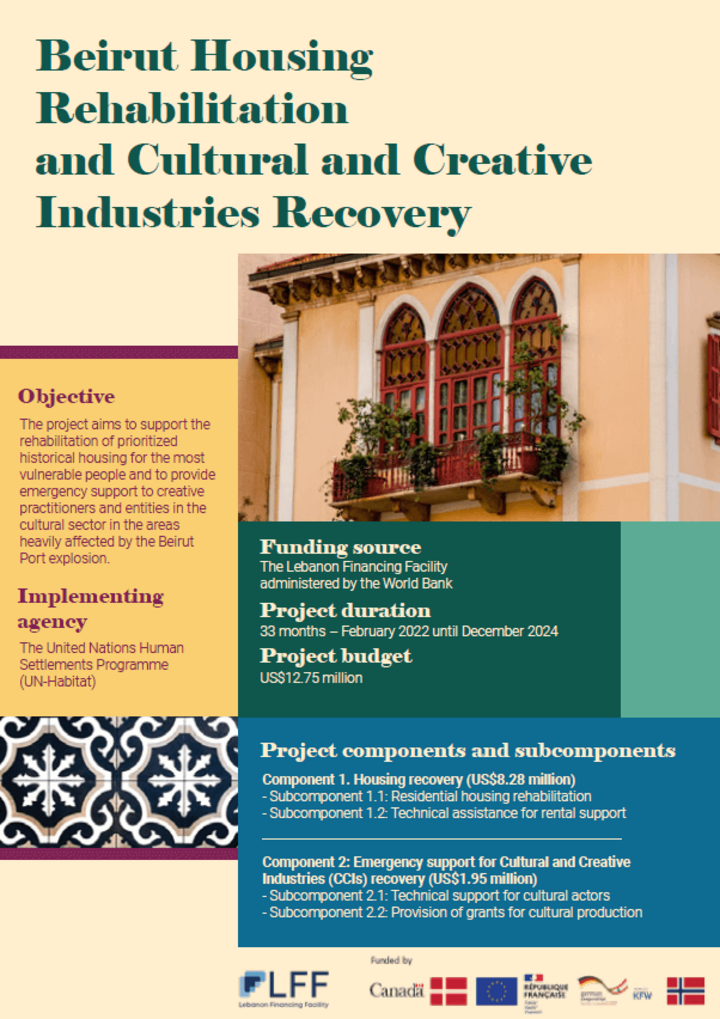Basic information
Grievance Mechanism (GM)
UN-Habitat has established a Grievance Mechanism (GM) which will ensure that stakeholders have the opportunity to provide feedback, submit inquiries and requests for information, as well as submit complaints related to the project. Anyone who is affected by or has an opinion about the project may submit feedback, make an inquiry or request or complaint related to this project.
To submit your feedback, inquiries or requests please access the forms in English or Arabic through the below links.
To find out more about the GM, click here.
Project documents
Project brochure
The Lebanon Financing Facility (LFF) is a multi-donor trust fund administered by the World Bank (WB) and is kindly supported by Canada, Denmark, the European Union, France and Germany. The Beirut Housing Rehabilitation and Cultural and Creative Industries Recovery project-flyer offers an important overview of the LFF-funded project and UN-Habitat’s role as a fiduciary agent in implementing the project’s components. The LFF project seeks to kick start the immediate socio-economic recovery of impacted cultural and creative practitioners and rehabilitate vulnerable historical housing units in areas most affected by the Port of Beirut explosion.
